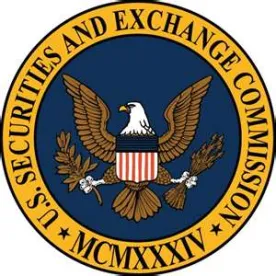Many are speculating on the future of federal securities regulation as a result of the election of Donald J. Trump and the concomitant Republican control of both houses of Congress. Broc Romanek, for example, asks whether Michael S. Piwowar will become the SEC’s next Chairman. Broc notes that Commissioner Piwowar is an economist, not a lawyer. Since the SEC is concerned with financial regulation, a background in economics should be a strong plus.
Since I’ve already seen signs of holiday decorating in the stores, I’ve drawn up my own short wish list for whomever takes the helm of the SEC.
The SEC should fundamentally change its approach to evaluating regulations. When considering the adoption of any new substantive regulation, the fundamental question must always be “Why is this regulation necessary?” A regulation isn’t necessary simply because someone thinks it is a good idea or constitutes a perceived “best practice”. A regulation is necessary only when it can be demonstrated that there is some market impediment that can only be removed by government intervention. It seems that regulations are too often adopted in reverse. It is tantamount to a doctor, knowing that a drug has proved beneficial in some cases, prescribes it to her patients without first making a diagnosis. If a market impediment exists, then the regulatory effort should be directed at removing the impediment not imposing additional requirements.
The SEC should ask Congress to repeal Section 16(b) liability. When Congress enacted Section 16 more than four score years ago, it was recognized that it was a “crude rule of thumb”. Given the rapidity of modern trading, the arbitrary six month period seems positively quaint. The calculation of profits under the rule can be bizarre. In some cases, persons are liable even when they recognized no overall economic profit. Congress enacted the rule to deter insider trading, but many persons who are guilty of trading on the basis of material non-public information aren’t even subject to the rule. In practice, the rule has become an economic boon to a few lawyers and a technical trap for many. At eighty plus years, Section 16(b) has had a good run, but now is time for it to leave the stage.
The SEC should abandon and repudiate its attempts to co-opt attorneys. Attorneys are their clients’ advisers and advocates. They are not gatekeepers as the SEC has on occasion supposed. The SEC should amend its attorney conduct (Part 205) rules to eliminate the purported ability of lawyers to disclose client confidences to the SEC. See Conflicting Currents: The Obligation to Maintain Inviolate Client Confidences and the New SEC Attorney Conduct Rules, 32 Pep. L. Rev. 89 (2004) and this post. The SEC should also amend its whistleblower rules to eliminate the possibility of attorneys obtaining whistleblower awards. See SEC Condemns Breach Of Client Confidences While Offering Possible Bounties For Breaches.
Allow companies to pick their reporting periods. There has been much debate about whether publicly traded companies suffer from short-termism. Although short-termism may have multiple causes, the SEC’s rigid requirement of quarterly financial information pressures companies to focus on short-term results. Why not let companies pick their own reporting periods? This will allow companies to telegraph to the market whether they are focused on short-term or long-term performance. To those who say that this is a bad idea, I say why not let the market decide? If investors think that semi-annual or annual reporting is inadequate, then companies making those choices will be undervalued and will incur higher costs of capital. Some companies might even elect to report more frequently than every quarter (e.g., bi-monthly). The beauty of this approach is that it is transparent and allows the market to achieve equilibrium at the optimal time for each issuer.
Allow companies to decide whether they will be subject to routine SEC review. It is hard to assess the efficacy of SEC staff review of filings. I’m sure that the SEC believes that staff review improves disclosure and that may well be the case. One way to test that position, is to allow companies to elect whether to have their filings be subject to SEC staff review. These elections would be public. Investors could then decide whether SEC review reduces risk through enhanced disclosure (because companies will do a better job because they know they are subject to review and/or because the staff’s comments result in improved disclosure). The efficacy of review should be reflected in differences in the cost of capital.
Readers will note that repeal of the Dodd-Frank Act is not on my wish list. That is the subject of this blog by Cydney Posner at Cooley LLP. As a final note, this is my personal wish list and it does not necessarily represent the wish list of my firm, partners, or any my firm’s clients.



 />i
/>i

